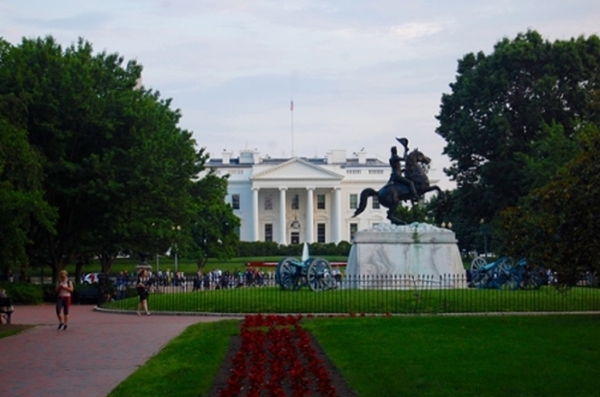The Speed of Reflection
John F. Kennedy famously described Washington, D.C. as a city with Northern charm and Southern efficiency. I believe the first half of the quote now that I have wandered DC’s street for miles and not made eye-contact with a single soul. In fact, one of the highlights of my week was being shouted at by an employee at Whole Foods. In her wonderfully tie-died shirt, this hippy delivered fresh, organic, overpriced rage. The blistering heat of these city streets does not melt the icy interiors of D.C. folk.
But the pejorative second half of the quote (about Southern efficiency) is not frankly true. Work in DC may seem slow, but part of my learning process at USIP has been adjusting to the speed of long-term planning. In my past jobs, I was always rushed. As a waitress, I sprinted around delivering food. As a journalist, I submitted stories on a strict deadline. Even in law school, I scrambled to write a comprehensive exam answer in just four hours. But when you’re dealing with topics like judicial reform for an entire country, you have to take your time.
At USIP, I have been encouraged to think through the serious issues at hand and contemplate solutions. A big part of my duties this week has been collecting information to make the best choices possible. Armed with my journalistic instincts, I probed and prodded scholars and experts outstanding in their field to give me background information for a project. Everyone I reached out to was enthusiastic; the most difficult part of the process was scheduling interviews in so many time zones.
That reflective intent was showcased at our USIP event World on Fire: Strengthening Humanitarian Response, co-hosted by OxFam American and trending on Twitter #ReShapeAid. I was fortunate enough to attend a panel discussion with Anne Richard, who works with refugee and migration issues at the Department of State, Fadi Hallisso, founder of a Syrian aid organization, and Elizabeth Ferris, a professor at Georgetown Law who is serving as Senior Advisor for the upcoming UN Summit in New York City. “We need more than a band-aid,” the moderator stressed. “Conflict areas need a long-term development plan.” Each panelist took a turn describing the migrant crisis in Europe from their vantage point. It was interesting to see the panelist describe their efforts to ease the abhorrent situations that migrants and refugees in the Middle East face each day. The average refugee spends 17 years away from their home country — the length of an education, a career, a childhood. While these issues are urgent, USIP’s event encouraged strategic thinking to improve the emergency systems that are already in place.
You can watch the entire event here.
